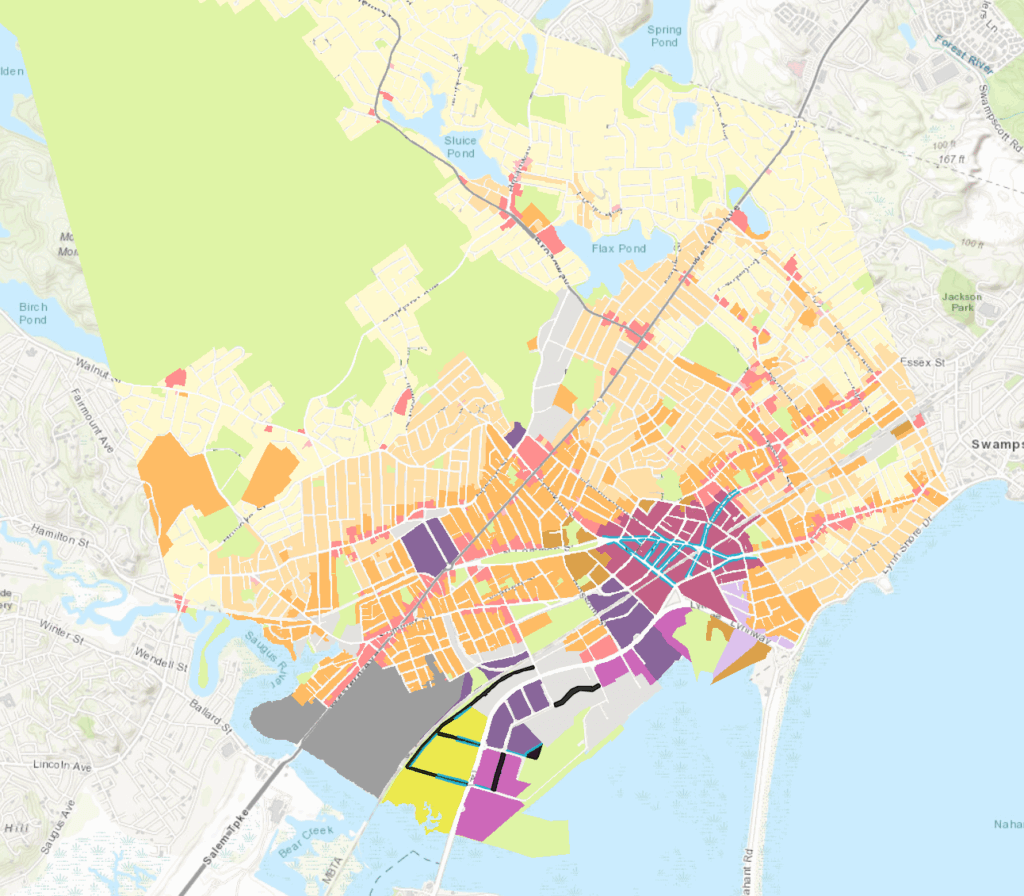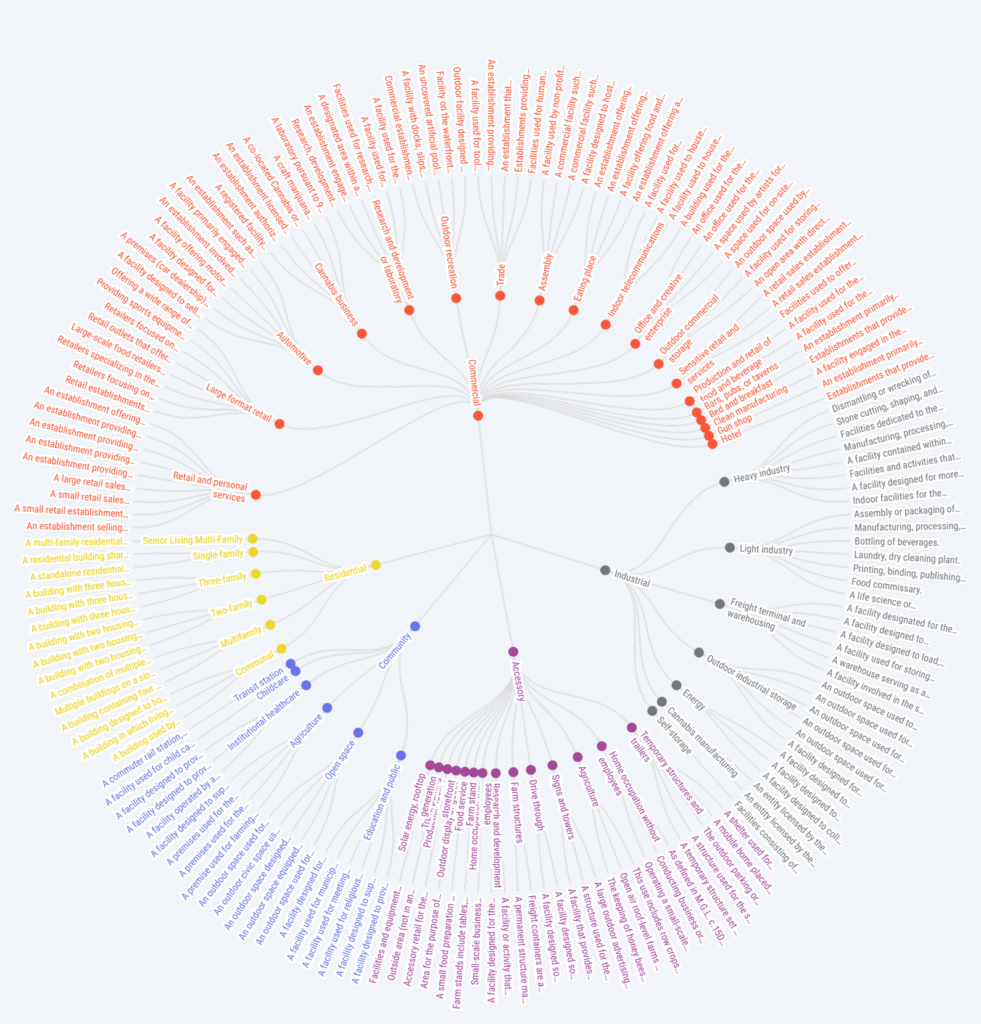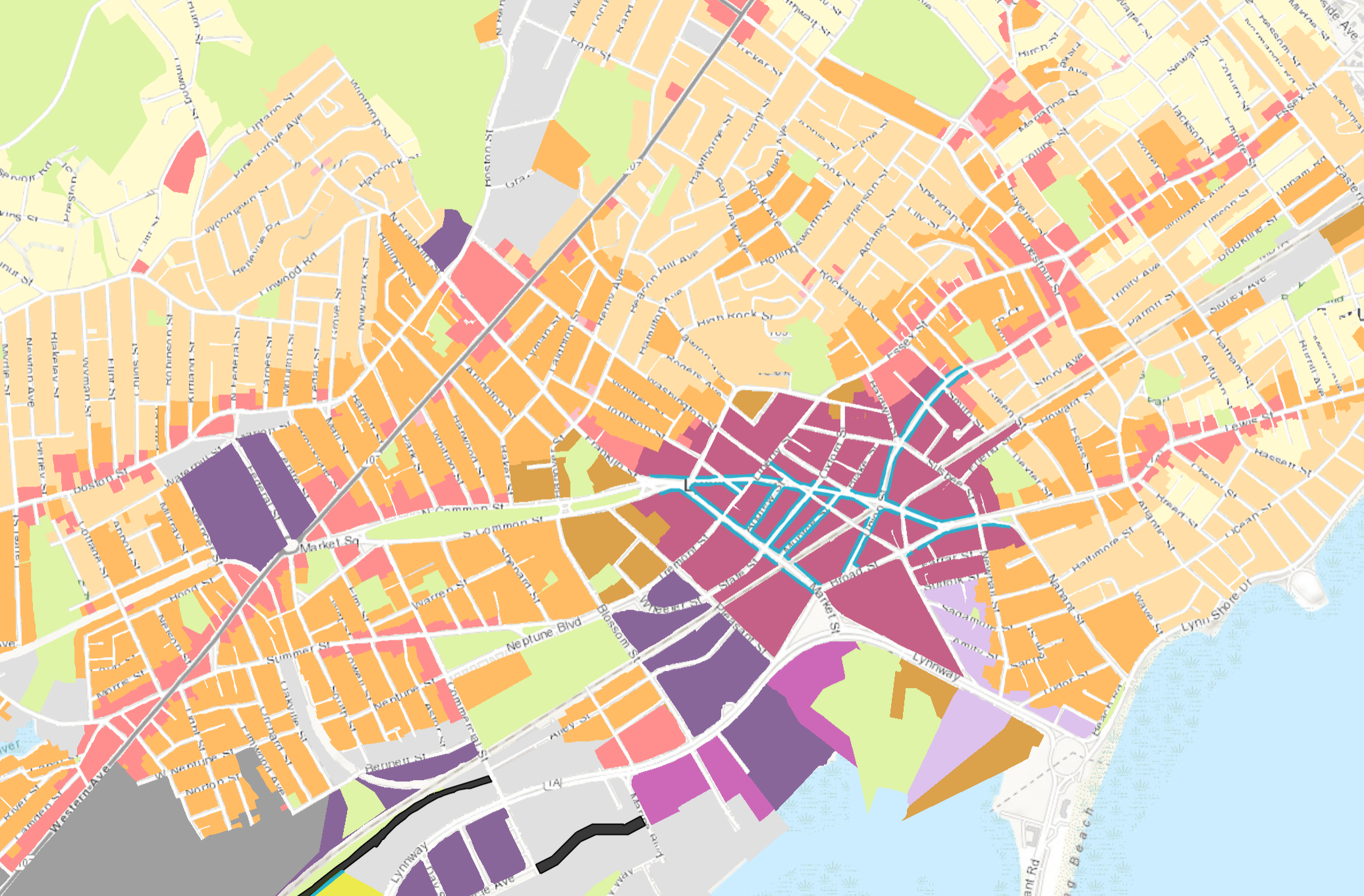CommunityScale authored a complete rezoning of the City of Lynn with Levine Planning Strategies, led by Jeff Levine, and BBHS Law, led by Jonathan Silverstein. The zoning rewrite was adopted unanimously by the Lynn City Council on June 24, 2025.
The rewrite focused on translating the City’s vision into a practical and effective zoning framework. A technical audit at the outset revealed that just 4% of Lynn’s residential parcels actually complied with the old code. The new ordinance corrects that mismatch, delivers a user-friendly structure, and supports twenty-first century economic, housing, and sustainability goals.
What Changed and Why It Matters
Predictable approvals replace use variances. Stakeholders told the City that routine projects often require variance for land use and dimensional relief, which created an unpredictable process for owners and residents. The new ordinance eliminates use variances altogether and updates the use and dimensional table to reflect the reality on the ground and the community’s vision. When a proposal needs discretionary review, the elected City Council now holds that authority through a clear special-permit process with written criteria, giving both neighbors and applicants a shared understanding of what counts.
Right-sized dimensional rules calibrated to real neighborhoods. Front setbacks, lot widths, height limits, and coverage ratios were rebuilt using block-by-block data. Triple-deckers, duplexes, and other long-established building types finally fit the rules. Homeowners and builders can now create infill housing at a scale that matches the existing neighborhoods.
Downtown ground-floor standards promote active streets. A new rule clarifies exactly where and how commercial space must occupy the first story along specified corridors. The requirement focuses on high-foot-traffic blocks and exempts quieter edge streets.

A simplified zoning map. Five residential districts have been trimmed to four. Outdated zones were retired while new mixed-use districts (M1 and M2) line Market, Washington, and Central Streets to create room for both housing and modern commercial space. These changes steer growth to logical corridors and nodes as identified in Vision Lynn.

A modern use table for a modern economy. Biotech labs, clean manufacturing, artisanal production, and breweries are explicitly addressed.
Read more about CommunityScale’s approach to functional zoning use groups.
Housing Opportunity
The rewrite preserves Lynn’s 2022 inclusionary-zoning mandate and changes the ability to deliver infill housing:
- Accessory dwelling units are now allowed by right.
- Dimensional tweaks let duplexes and triple-deckers fit in existing infill lots.
- Rebuild grace period for nonconforming structures after a disaster is extended from one year to three, giving owners time to secure financing and permits without losing rights.
- Adaptive reuse of legacy buildings now has a clear path to covert to residential while contributing to historic preservation. Former mills, schools, other commercial buildings, and large pre-1965 residences can be converted to two or more dwellings by special permit.
A Community-Driven Process
Mayor Nicholson emphasized transparency throughout. The planning team produced an interactive map, videos, and infographics. A multilingual survey and a six-week public-comment period generated formal comments, many of which prompted adjustments and clarifying definitions. A cross-departmental working group drew members from Law, Inspectional Services, EDIC, the Planning Board, the Zoning Board of Appeals, and three City Councilors.

Mayor Jared C. Nicholson
City of Lynn, MA
Comment from the zoning adoption hearing
“The document is a result of extensive public input process that included multiple surveys, community presentations, office hours, videos, and a formal public comment period. A 21st century zoning ordinance will help us achieve our vision for the community for the kind of growth that we’re looking for in jobs and neighborhoods and make the process more predictable, which benefits everyone.”
Lynn now has a zoning framework that matches the reality on the ground, encourages balanced growth, and is easy for residents and investors to understand. The City can attract private investment, expand its commercial tax base, and add diverse housing choices while giving residents confidence that change will be guided by transparent, predictable rules.
